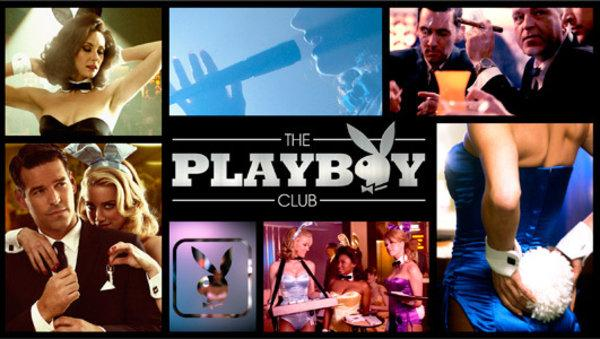Comparisons to “Mad Men” were brushed aside. The controversy over a Salt Lake City affiliate’s refusal to run the program were glossed over—because another station picked it up. The argument was set forth that the show is about women’s empowerment.
Those were the headlines from the NBC TCA panel on the network’s upcoming one-hour drama “The Playboy Club,” set to premiere Monday, September 19 at 10/9 Central.
Set in 1961 at Chicago’s Playboy Club, the provocative new series is certain to be one of the most scrutinized shows of the fall season. It’s already engendering controversy–and intrigue– well before its premiere.
“It’s the early ‘60s and the legendary Playboy Club in Chicago is the door to all your fantasies… and the key is the most sought-after status symbol of its time” is how it’s being billed by NBC.
Starring Eddie Cibrian, Amber Heard, David Krumholtz and Laura Bernanti, “The Playboy Club” represents a risky foray for the network, a high-budget period drama, but one with a built-in brand name.
Yet seemingly denying some of the brand’s attributes, executive producer Ian Biederman told the audience of television critics gathered in the Beverly Hilton’s International Ballroom that the show was not racy or exploitive– and stressed the difference between Playboy magazine and the Playboy clubs.
“In terms of content, it will be mild. These are characters who are in a certain time and certain place. The show will be a lot of fun. It will have a ton of music and lots of energy,” he said, differentiating it from the noir aspects ofAMC’s critically acclaimed “Mad Men,” which takes place during the same early 1960s time period and doesn’t quite include elements of fun or music.
When questioned about the tagline “Men hold the key, women run the show,” the bunny costumes and whether they were intrinsically sexist, female cast members became defensive. One talked about how they were coached not to let their breasts rest on the table as they were serving customers– and then delved into a discussion about how bunnies are not centerfolds, while acknowledging that some bunnies became Playmates.
Biederman said Playboy bunnies were highly sought-after jobs at a time when women did not have many career choices, and very few highly-paid ones, and that they will be portrayed as intelligent and empowered women.
Cast member Naturi Naughton– who coincidentally has guest-starred on “Mad Men”– said her role as what she termed one of the few “chocolate [African-American] bunnies” was as a strong, ambitious, confident young woman.
The tension in the room was broken by castmate Jennifer Lewis, who said, “Someone has to have sex in the bathroom” before discussing her character as representing a big step up for black women coming off welfare.
Cibrian said he’s studied up on the period by looking at photos and reading books that describe the era, but that he did not have to look further than the streets of Chicago and witnessing how businessmen brashly treated waitresses in this day and age to inform his character.
“People smoke and drank, and didn’t think about the consequences,” he said, while discussing an era when mobsters, celebrities and politicians all rubbed shoulders.
Those interactions will be reflected in the show, set to a soundtrack of Frank Sinatra, Ray Charles and Sammy Davis, Jr.
We already know someone gets murdered, but will Cibrian’s Nick Dalton be broadcast television’s Don Draper, the enigmatic man around whom everything else revolves?
We’re betting viewers in Salt Lake City, and everywhere else, will tune in to find out. And of course, for those iconic bunny costumes, worn by enlightened, empowered women making a good living.


